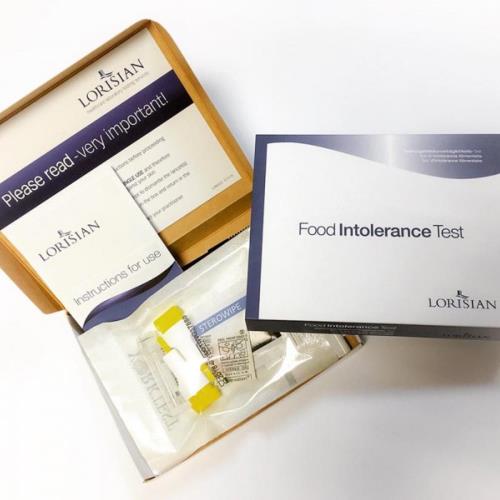
A food intolerance can occur when the body has difficulty digesting certain foods. When this occurs over time, large food particles (proteins) may enter the blood stream and this can cause inflammation.
When foods and drinks are digested, the proteins within them are broken down into smaller fragments for easy absorption into the body. Larger fragments can pass through without breaking down, and sometimes the body reacts by attacking them using antibodies called Immunoglobulin G’s (IgG).
A food-specific IgG reaction should not be confused with food allergies, nor other types of food intolerances, which Lorisian do not test for. These include:
- Enzyme deficiencies e.g. lactose (milk sugar) intolerance
- Coeliac disease; requiring lifelong avoidance of gluten
- Chemical sensitivities e.g. histamine, tyramine, sulphites etc
Food intolerance can cause a wide range of disruptive symptoms such as digestive problems, eczema, migraines and headaches, fatigue, depression and low mood, joint pains and sinusitis.
It is always recommended that any concerns are discussed with a doctor first, before taking a food intolerance test. This is to fully investigate the potential causes which may include investigations for coeliac disease and/or lactose intolerance and provide the medical follow up required. It is a fact of life, however, that in many cases there is no medical explanation for symptoms such as these.
For example, medically unexplained symptoms or ‘functional symptoms’ where doctors can’t find a problem with the body that might be the cause, account for up to a fifth of all GP consultations in the UK¹. These include symptoms such as tiredness, chronic fatigue (ME), depression, anxiety, IBS, fibromyalgia, headaches and migraines, skin rashes and joint pains, runny nose and sinusitis.
Many people with these problems will be given the all clear by their doctor and strongly suspect that food is the root cause of their problems. So what options do they have?
- Do nothing
- Choose to remove foods from their diet by second guessing
- Seek support from a dietician or nutritional therapist and try an elimination diet and challenge method; a method which can be long and laborious (it is difficult to determine the exact combination of relevant trigger foods using this method)
- Take a food intolerance test to identify their food triggers and fast-track their elimination diet
|